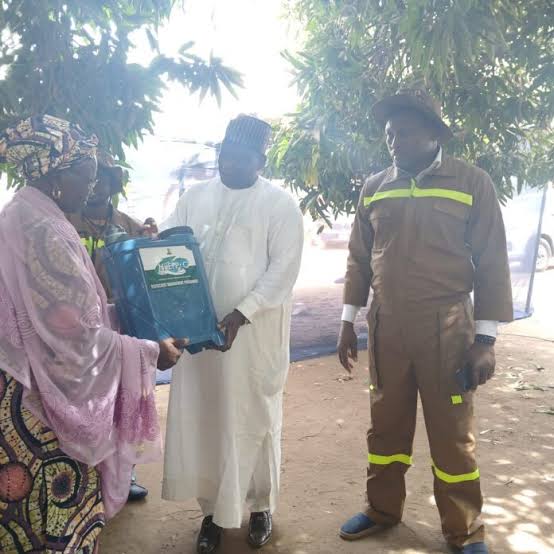
The Nigerian Export Promotion Council (NEPC) has reaffirmed its commitment to addressing the rejection of Nigerian agricultural exports in the European Union (EU) due to pesticide residues.
Mrs Nonye Ayeni, Executive Director of NEPC, made this known at a training programme on pesticide management for smallholder farmers at the Geriyo Irrigation Farm, on Thursday in Yola.
Ayeni emphasised the need for proper pesticide application and management to improve food safety and enhance the quality of export-bound agricultural produce.
She said that the training, with technical support from the Adamawa Agricultural Development Programme (AADP), aimed to equip farmers, processors, and export merchants on safe and appropriate use of pesticides.
“The continued ban and rejection of Nigerian agricultural produce in the EU and other export markets due to pesticide residues and other contaminants remain a major concern for NEPC.
“Nigerian agricultural exports often face rejection at border control points due to excessive levels of pesticide residues, which exceed the maximum permissible limits,” Ayeni said.
She stated that research indicates that over 70 per cent of smallholder and commercial farms in Nigeria rely on pesticides to prevent pest attacks, with application done at post-harvest stage.
Ayeni noted that the lack of formal training among farmers and processors had resulted in improper usage, leading to health hazards, soil contamination, and environmental risks.
“A large number of those applying pesticides are not certified contract sprayers.
“They often suffer intoxication due to a lack of awareness of safe application techniques and inadequate protective equipment,” she added.
Ayeni stressed that pesticide residues exceeding recommended levels not only pose health risks but also threaten Nigeria’s agricultural export potential.
She explained that the World Trade Organisation (WTO) recommends that pesticide use in crop production, either for consumption or export, must align with Good Agricultural Practices (GAP).
She assured stakeholders of NEPC’s continued support through capacity-building programmes, provision of farm inputs, access to quality certification, and financial grants to enhance productivity.
Mr Ishaya Dabari, Commissioner for Commerce, Trade, and Industry, in Adamawa, said the state government collaborates with federal and international agencies to train farmers in modern agricultural practices.
“Our collaboration is aimed at helping farmers grow high-quality crops that are exportable and competitive in international markets.
“In the Ministry of Commerce and Trade, we work with chambers of commerce to encourage small-scale businesses to venture into farming, not just for consumption but for export as well.
“Some of the crops exported from Adamawa include soybeans, bean seeds, groundnuts, and livestock,” Dabari said.
He urged farmers to take advantage of NEPC’s training programmes and extend the knowledge gained to others in their local communities.
A beneficiary, Mrs Beatrice Benjamin of the Nigerian Association of Small and Medium Enterprises, commended NEPC for the timely intervention.
“Before now, we lacked proper knowledge of herbicide safety.
“We often overused pesticides and exposed ourselves to chemicals, which posed health hazards to our communities.
“This training has equipped us with the right knowledge to safely apply herbicides, ensuring our products meet global standards,” she said.















